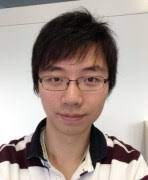Tuesday, January 11, 2022 | 11 am EST (U.S. Eastern Time)
Virtual Event
Join from PC, Mac, Linux, iOS or Android: https://tennessee.zoom.us/j/92785554806
Password: 655840
Should you need further details about this event, please contact Sara Mulville (smulvill@utk.edu).

Title: NUFEB – a massively parallel simulator for individual-based modelling of microbial systems
Speaker: Bowen Li
Relevant publication: Plos Comp Bio
Abstract: NUFEB (Newcastle University Frontiers in Engineering Biology) is an open-source software for modelling 3D dynamics of microbial communities. The tool is based on the Individual-based Modelling (IbM) approach, which allows users to explicitly describe the dynamics of each microbe as well as both inter- and intra-cellular processes that result in microbial growth, decay, motility, etc. NUFEB allows studying population behaviours that emerge from the interaction between individuals and their environment. The novelty of NUFEB lies in its parallelisation and generic model specification, enabling realistic modelling and simulation of systems with over 10^7 microbes and a wide range of biological, physical, and chemical processes at millimetre scale. In this talk, I will give an overview of the NUFEB functionalities, and showcase the type of microbial systems NUFEB can be used to model and simulate. Examples include biofilm formation in wastewater treatment system; minicell (synthetic chassis) formation and plasmid dynamics in minC mutant B.subtilis; and biofilm deformation and detachment under fluid flow.
Bio: Bowen Li is a Research Associate in the School of Computing, Newcastle University, UK. His research interests centre on computational modelling, including both theory and application. Li received his PhD in 2017 working on the formal modelling and verification of complex evolving systems. Since then, he has been involved in several UK EPSRC-funded projects as modeller and research software developer. He is the lead developer of the NUFEB software, and his modelling work focuses on 3D individual-based modelling of biological systems in bioengineering, biophysics and synthetic biology.